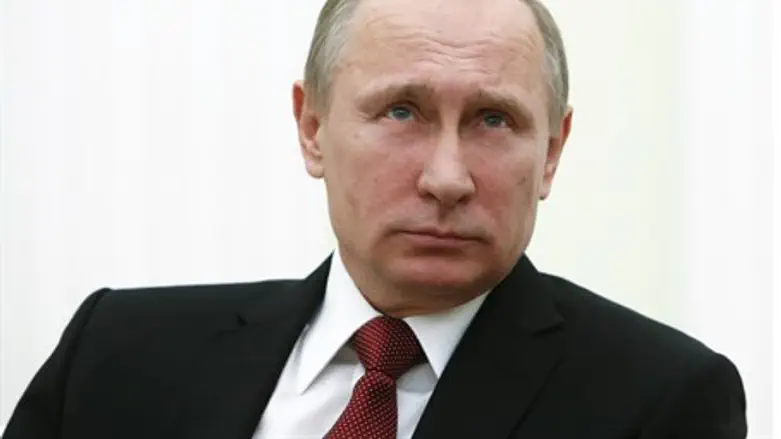
Russian President Vladimir Putin explained on Thursday that Iran's drive to find a solution in talks over its nuclear program had spurred his decision to renew a contract to deliver S-300 missile defense systems to Tehran, Reuters reported.
"With the progress of the Iranian nuclear track -- and that is obviously positive -- we do not see any reason to continue to keep the ban (on the delivery of the S-300) unilaterally," Putin told his annual marathon call-in show with Russians.
Iran and six world powers made a major breakthrough in talks earlier this month by agreeing on the parameters for a final deal to scale back Iran’s nuclear capabilities. A final deal has yet to be negotiated, however, with the deadline for that being June 30.
Speaking in The Hague on Thursday, European Union foreign policy chief Federica Mogherini referred to Russia's actions as "complications" but said they would not derail progress toward a final accord.
"The agreement, the understanding that we reached a couple of weeks ago in Switzerland, is solid enough to allow us to continue the drafting of the final agreement," she said, according to Reuters.
Russia has been Iran's key ally in the talks with world powers. But Putin also said Russia would still work "as one" with its partners over Iran, and that deliveries of the S-300 would work as a deterrent in the Middle East.
Putin’s comments come two days after Prime Minister Binyamin Netanyahu phoned him to express Israel's great concerns over the deal. In the phone call, Netanyahu warned Putin that the sale will increase Iran's aggression in the region and shake the security of the Middle East.
Russia signed a contract in 2007 to supply Iran with five S-300 advanced missile batteries, which can be used against aircraft or guided missiles, at a cost of $800 million.
In 2010, Russia's then-president Dmitry Medvedev cancelled the deal, after the United States and Israel applied strong pressure on him. Both countries worry that the S-300 would make Iran less vulnerable to attack by either one of them, and motivate Iran to develop a nuclear weapon.
For its part, the United States has responded to the lifting of the ban with statements of concern and admonition, while Iran touted the deal as being good for “regional stability”.